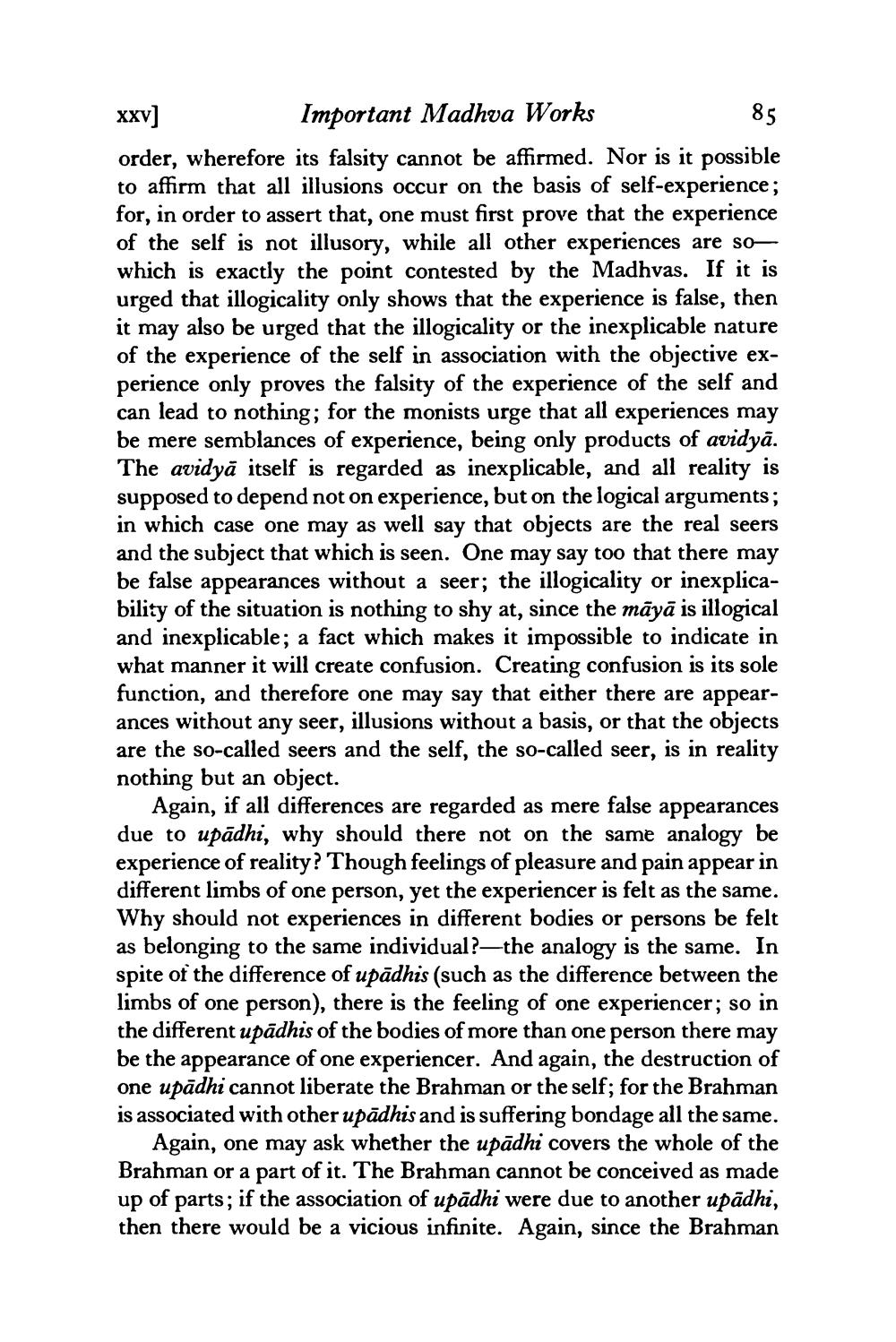________________
85
XXV]
Important Madhva Works order, wherefore its falsity cannot be affirmed. Nor is it possible to affirm that all illusions occur on the basis of self-experience; for, in order to assert that, one must first prove that the experience of the self is not illusory, while all other experiences are sowhich is exactly the point contested by the Madhvas. If it is urged that illogicality only shows that the experience is false, then it may also be urged that the illogicality or the inexplicable nature of the experience of the self in association with the objective experience only proves the falsity of the experience of the self and can lead to nothing; for the monists urge that all experiences may be mere semblances of experience, being only products of avidyā. The avidyā itself is regarded as inexplicable, and all reality is supposed to depend not on experience, but on the logical arguments; in which case one may as well say that objects are the real seers and the subject that which is seen. One may say too that there may be false appearances without a seer; the illogicality or inexplicability of the situation is nothing to shy at, since the māyā is illogical and inexplicable; a fact which makes it impossible to indicate in what manner it will create confusion. Creating confusion is its sole function, and therefore one may say that either there are appearances without any seer, illusions without a basis, or that the are the so-called seers and the self, the so-called seer, is in reality nothing but an object.
Again, if all differences are regarded as mere false appearances due to upādhi, why should there not on the same analogy be experience of reality? Though feelings of pleasure and pain appear in different limbs of one person, yet the experiencer is felt as the same. Why should not experiences in different bodies or persons be felt as belonging to the same individual?—the analogy is the same. In spite of the difference of upādhis (such as the difference between the limbs of one person), there is the feeling of one experiencer; so in the different upādhis of the bodies of more than one person there may be the appearance of one experiencer. And again, the destruction of one upādhi cannot liberate the Brahman or the self; for the Brahman is associated with other upādhis and is suffering bondage all the same.
Again, one may ask whether the upādhi covers the whole of the Brahman or a part of it. The Brahman cannot be conceived as made up of parts; if the association of upādhi were due to another upādhi, then there would be a vicious infinite. Again, since the Brahman




